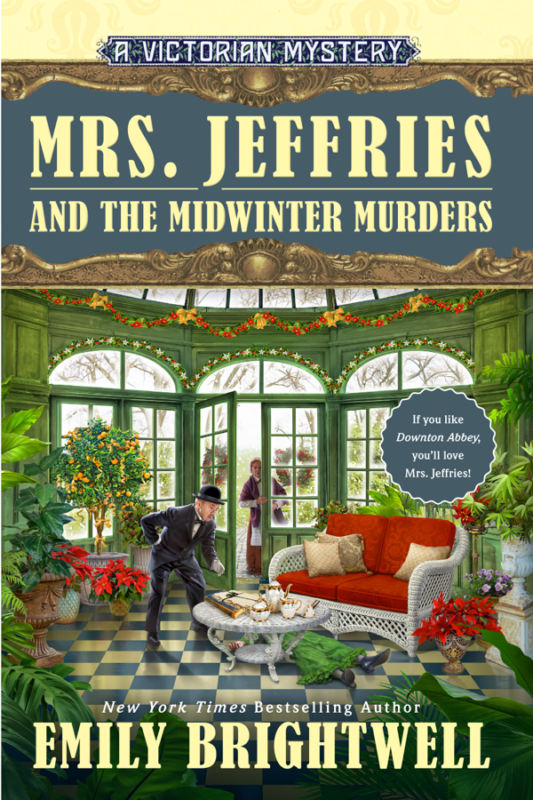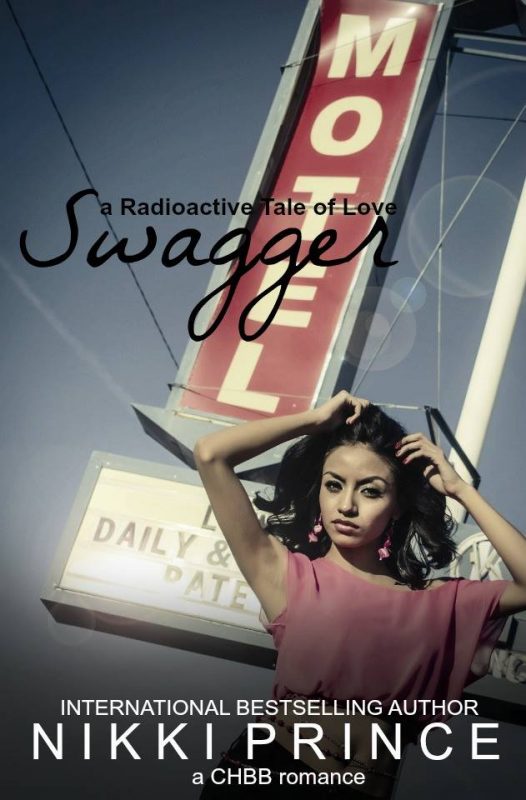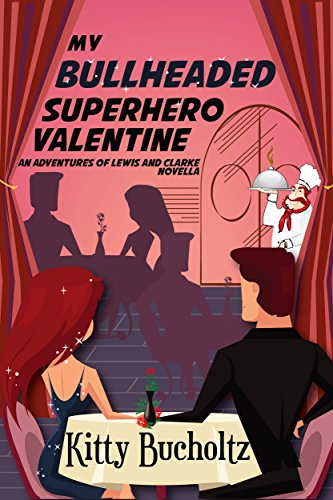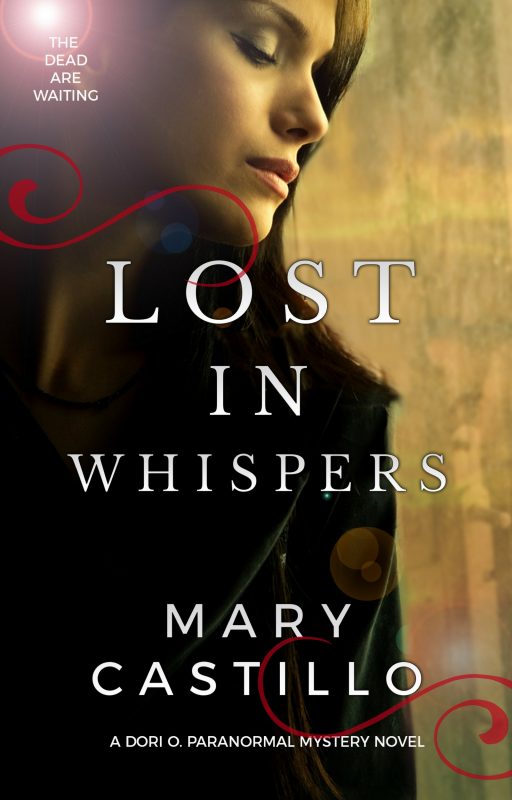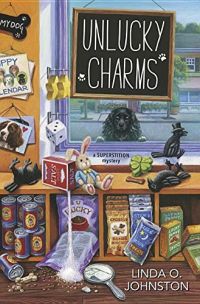The Joys—or Not—of Editing by Linda O. Johnston
February 6, 2019 by Linda O. Johnston in category Pets, Romance & Lots of Suspense by Linda O. Johnston tagged as Barkery & Biscuits Mystery, editing, For a Good Paws, Linda O Johnston, Midnight Ink, mysteries
The Joys—or Not—of Editing
I’m currently in the process of reviewing and responding to the copy edits for For a Good Paws, my fifth Barkery & Biscuits Mystery for Midnight Ink. The process they use is a bit more complicated than many publishers I’ve dealt with recently since it involves making notes about things to change and not just redlining a clean version. It takes more time, but it’s really not so bad.

I’m a bit emotional about this one anyway, since it’ll be my last mystery for Midnight Ink because the publisher is sort of closing–at least not buying any more books, although they may continue to market existing ones for a while. So far, I haven’t requested my rights back and probably won’t immediately.
Will I do more Barkery mysteries? I’d need to get at least some of my rights back to do that, and I’ve got other ideas to work on first–so I’m not sure. But if not, I’ll miss them!
These days, I’m sitting at my computer a lot working on those edits, which are due soon. Recently, we’ve had a lot of rain, so sitting at my computer is a good place to be. Since I’m in LA, I didn’t experience the Polar Vortex first hand but I’m sending hugs to those of you who did. We have family near Chicago, so I got to hear some fairly scary stories—but all came out of it okay. Hope that’s the same with you and yours as well.
And yes, the year marches on. No, it’s not March yet, but it is almost Valentine’s Day. So hug your sweeties, stay warm and dry—and read, write and/or edit some good books!
1 0 Read more
SELF INFLICTED WOUNDS by Jenny Jensen
January 19, 2019 by Jenny Jensen in category On writing . . . by Jenny Jensen tagged as credibility, editing, Editors, self-publishing, typos
The Indie Revolution is the most exciting innovation since Google; it’s more refreshing than the demise of the mullet. It’s such a grand opportunity! It’s so… democratic. Anyone with the passion and discipline to write down the stories that live in their head can offer their work to the world. There are no subjective, judgmental, economic barriers blocking the way. Every avid reader can troll the newest book offerings looking for that next great discovery. When I find a fresh new voice with an exciting sense of drama, fascinating characters and a unique tale to spin it’s like winning the lottery (at least I imagine it is, having never won myself).
And we all know what they say about opportunity—it’s something to make the best of. That’s why I am so amazed how many Indie books contain errors of the sort that any good set of editorial eyes would have found and corrected. It’s a message to me, the reader, that I’m not important enough to make the book right. Or worse, the author thinks so little of me that I’ll accept any error, that I won’t notice or care.
How can I not care when DCI Stewart, ruggedly attractive in a wry funny way (this narrative already has me considering Book Two) has just gone through XXI chapters of intriguing madness to finally find the decisive evidence and as he lifts the shredded ribbon from the debris of the broken vase he cries, “Waa La!”. What!? Waa La? I’m out of the moment now, jerked rudely from the mounting tension. DCI Stewart is no longer clever or ingenious; he’s an idiot. Give the poor man a “Viola!”. I can’t bear to look at any more.
It’s a different kind of awful when the whip smart heroine finally descends the grand staircase to face her treacherous half siblings and the room falls silent, “the rustling tool of her elegant gown the only sound”. This instantly conjures hysterically unintentional images. Yikes, it’s toile. I want to scream. The story has lost all credibility. I can’t get my reading mojo back. Why didn’t this author care?
It’s one thing to accept a typo or two, even a few missing prepositions are forgivable (just remember all those reviews that say it would have been a 4 star except for the typos) but it’s a lot to ask your audience to overlook faulty word choice, a change of voice in mid-chapter, a glaring hole in the timeline, a nonsensical plot point or character traits that shifts mid stream.
Such errors are forgivable in any draft—that’s where the author gets the story down and who cares if a character proclaims it’s a “mute point”. Under the fresh, critical eye of an editor it will become a moot point. This is the stage where an objective eye sees what the writer has missed by staring so long at the trees. Maybe the story arc lags, maybe the narrative or characters are inconsistent, a good editor and the writer can fix it. Doesn’t the writer want it perfect?
Indie publishing is such a golden opportunity and writing a good book requires so much personal investment to get to a good draft it’s sad how many writers just blithely publish, warts and all. Take the extra step and work with an editor. Your book and your readers are worth it. We editors can to save you from shooting yourself in the foot.
4 0 Read moreREDUNDANT
September 19, 2018 by Jenny Jensen in category On writing . . . by Jenny Jensen tagged as editing, redundant, writing
REDUNDANT: adj. Exceeding what is necessary or natural; superfluous. Needlessly wordy or repetitive in expression. American Heritage Dictionary
In my editing business I come across redundancy a lot. That and it’s kissin’ cousin overwriting. Both are common, and excusable — especially in the draft stage. We all do it. A draft is the place to get every thought out and on the page. It isn’t surprising when your draft reads: “Conversation with Jason was so dull and boring he was putting Claire to sleep”. That’s a simple repetition of meaning within a single sentence and it’s easy to spot and fix. If Jason is so dull he’s putting Claire to sleep then clearly the guy is boring. Go for punchy: “Claire found conversation with Jason soporific.” If you’re looking for it you’ll spot the redundant meanings and as awareness grows even drafts lose the redundancies.
Redundant means needlessly wordy as well as repetitive and that’s a writing snafu that can suck the life right out of good story.
Despite her past history Shelia remained woefully sad about the unintentional mistake that she’d made a long time ago when she was just a silly, young adolescent and not the wise and knowing 17 year old she was now. She wished she could just postpone the principal’s request until later and deal with the whole ugly business in the future when she was older and prettier (as if that was even possible). Squaring her shoulders she pulled herself up, raised her chin, took an enriching deep breath and marched into Mr. Grisslywald’s office.
Wow, there it is: redundant kissing right up to over writing. They often go hand in hand like mismatched mittens. You know a book suffers from overwriting when you find yourself thinking “Get on with it…puhleese” in the middle of a chapter. But it’s easy to spot when self-editing. If a passage seems overly long take out all the words that don’t affect meaning and then question the necessity of what’s left. Does it move the story forward? Add anything to plot or character understanding? Strengthen foreshadowing or reinforce atmosphere? If not, cast the evil over writing out. Keep your narrative flowing with the essentials.
Having relayed all those warnings about redundancy, it does have a bright side. Repetition is a well-used literary technique. Used correctly and for the right reasons it’s very effective. Trigger words (or phrases) for example. Trigger words are words chosen to elicit an emotional response and can be very powerful when repeated throughout a story. A bit like metaphor, the meaning of a trigger word needs to be established early in the narrative i.e., what emotional response the author wants it to evoke. Then when that trigger word appears again and again in the appropriate place, the reader knows and feels that emotional response. It can be a very effective way to convey character motivation, or reinforce a story’s entire premise.
A story of mine opens with the narrator remembering her grandmother. Granny Mae Rae spit with disdain when talking of those women she called Passion Hearted. These are the women who can’t face their lot, accept the man they’re supposed marry, bear without fuss the children they’re fated to have and carry on with the chores of life without complaint. Instead they search for meaning, for some strange notion of fancy love, chasing after some fey idea of purpose. Granny Mae Rae knew all about purpose and it wasn’t Passion Hearted.
That term is explained up front and repeated throughout the narrative as the heroine comes to learn that she is one of Granny’s Passion Hearted. Her rags to riches character, who seeks a soul mate, is better understood and her motivations reinforced by repetition of that trigger. OK, mine may not be great literature but the technique works.
Repetition can be a really effective device if properly used, but as a natural consequence of writing it’s often redundant. Stay mindful of dull and boring, aware of unnecessary verbiage and repetitive descriptions and actions that don’t add anything. A clean, succinct narrative allows us readers to happily just get lost in the tale.
Jenny
2 0 Read moreREAD LIKE A WRITER, EDIT LIKE A SURGEON
June 18, 2018 by Jenny Jensen in category On writing . . . by Jenny Jensen tagged as editing, reading, writing
READ LIKE A WRITER, EDIT LIKE A SURGEON
It isn’t a novel yet. First draft is complete, now the next step – the self edit. Shiver! It’s a herculean chore to turn a critical eye on a manuscript you’ve labored over so long and lovingly, but you know it’s imperative. You’ve got standards; you know you have to meet those standards before you turn your work over to the scrutiny of fresh eyes — editor or beta reader. You’ve lived with your story a long time. You know every character, each plot twist, every setting and every detail of conflict. Now you have to see the whole forest, not just each single tree.
The most common advice is to step away for a bit and let go. A week, a month, however long so the words to are new to you. I agree completely. The longest I’ve let work set is one year. On re-reading the manuscript, face flushing, teeth grinding at the lame ending, I placed it firmly in the back of my file cabinet. And I didn’t look back. I’m either a coward or I used the writer side of my reader’s brain to realize and accept all 92K words as well-intentioned practice. It was a good exercise, something to hone my skills. That’s my story and I’m stickin’ to it.
I don’t think there’s a book written that when read with a writer’s eye, doesn’t contain lessons. You have an ear for good writing – you’re a reader after all, so when you self-edit consider what you’ve learned to turn a laser eye on your own work. What is it that made a story grip and hold you? If the book bored you, why? Those stories that delighted you contain elements of craft you want to see in your own work. Those bad books contain pitfalls to avoid.
For me the not so good books hold the most obvious lessons. The tedious information dump, more information than the reader needs to know — makes you wish for some lively dialog to impart the stuff we do need to know. Setting descriptions so detailed you wonder if the book wasn’t produced by a Chamber of Commerce. Scenes, no matter how well written, that add nothing to the story. Dialog tags that tell us what emotions to feel. The dialog itself should do that. Repeated phrases, worm words, and worst of all, unlikeable characters we are meant to root for. I have to be shown a reason to care.
Every full-length novel you’ve loved has a voice pleasing enough to live with for a period of time — some books you just don’t want to end. The sentences flow smoothly, details are salted through out so they support the rise of the story arc. Settings come to life in way that makes place a solid, necessary character. If the plot is confusing at some point that confusion is cleared as the story unfolds – it’s that compelling voice that keeps us reading. There’s no unnecessary fat. The characters grow and develop in the course of their journey and while we might not always like them, we’re intrigued enough we must know what happens.
Read like a writer. Consider what makes a good story good and then use those characteristics like a scalpel when you sit down to your self-edit. Be unmerciful. You’ll thank yourself later.
Dear Extra Squeeze Team, How Do I Know When to Stop Writing?
March 31, 2018 by The Extra Squeeze in category The Extra Squeeze by The Extra Squeeze Team tagged as editing, first drafts, writing
Dear Extra Squeeze Team, How Do I Know When to Stop Writing?

Rebecca Forster
USA Today Bestselling author of 35 books, including the Witness series and the new Finn O’Brien series.
This is an interesting question because it implies that the problem is with the end of a book. If that is the case, then I have never had a problem knowing when to stop writing. Before I begin I know the end. I even know the last sentence I want to type. But when it comes to overwriting, there’s more to the story (okay, pun intended)
In the thirty plus years I have been a working novelist I still overwrite the middle of the manuscript. I intrude on my own work with asides, philosophy, research information, angst and whatever else comes into my mind in the throes of creation.
Thanks to a wise editor (our own Jenny Jensen) I have learned to recognize this problem and deal with it as follows:
1) Don’t worry about it during the first draft.
2) On your first self-edit identify and cut what you believe to be extraneous information and place this in a file in case you wish to reinsert it later.
3) Read again. Keep cutting or reinsert information with an objective eye.
4) Send to your editor who – intimately knowing the author’s propensity to overwrite the middle – will identify anything that slows the story, creates questions or bores the reader.
Overwriting is not just a function of the end of the book but of the book itself. A story always has a beginning, middle and a resolution. Do not start writing before you know what that resolution is because it gives you a point on your literary horizon. That is where you must stop. The problem for me is that getting to that point is sometimes messy. Instead of writing that straight line from A-B, I zig-zag and overwrite.
P.S. In the years since I adopted the cut and save file I have never once gone back and used anything, but it sure makes me feel better to know it exists.
[tweetshare tweet=”Dear Extra Squeeze Team, How Do I Know When to Stop Writing?” username=”A_Slice of Orange”]

Jenny Jensen
Developmental editor who has worked for twenty plus years with new and established authors of both fiction and non-fiction, traditional and indie.
When the story is told. The rest is editing.
The goal is to tell the story that lives in your head. Keep writing until you get it all out and down on paper (or pixels). Length doesn’t matter at this point; it’s the story that counts. Once you type ‘The End’ and find yourself with 40,000 words you may have a novella. If the tally is between 80 and 90,000 it meets the average length for a novel in most genres. When the word count tips to 120,000 + you may have an epic (Sci Fi and Fantasy are often longer) or the need to lose 20 – 40,000 words. You’re now at the stage of the brutal self-edit.
There are no rules for how long a novel should be, but readers do have some expectations. Given those expectations of length the choice is yours as to which literary format you want. Regardless of bulk all successful fiction shares one characteristic: good structure with clean flow. A successful novel has a beginning where the characters and the problems are introduced, a middle where the characters evolve and the problems are dealt with, and an end with confrontation and resolution. That path is smooth and enjoyable for the reader because the flow is good – it carries the reader along seamlessly.
Overwriting is usually the cause of a too long word count and the cause of disjointed story flow. It’s all right – we all do it. You had to get it all down on the page. Now it’s time for some honest self-editing.
Dialog tags are a common cause of overwriting.
“Don’t,” she said with a fierce glint flashing in her eyes. Eleven words that flow so much better as three: “Don’t,” she hissed.
Too many words dampen the impact.
Do you have descriptive passages meant for mood and setting that are so elaborate they distract from the action? Cut, tighten and move the story along. Do you find you’ve written back-stories and sidebars meant to enlarge on character or setting but are actually an unnecessary detour? If you’ve got your heroine on a dark country road when her tire blows and then she falls into memories of a frightening slumber party from her past you’ve broken the flow of the tension for something that doesn’t add to the story. Delete it. (Oh I know, it’s hard to kill your children but you can always copy it into a file marked for future use.)
Read your work with an editor’s eyes. Every word, every scene must help carry the story along; it must add to the plot, build the tension, build on a character. Make certain your words all carry the necessary function for the story to flow so smoothly that the reader can’t look away. If you don’t get an editor, get a strong beta reader to help you peel away the extraneous dross. Once that’s been done correctly, what you have is the best your story can be.
Robin Blakely
PR/Business Development coach for writers and artists; CEO, Creative Center of America; member, Forbes Coaches Council.

When to stop writing—is that just when completing one book or…forever?!
With one book, I don’t think it’s a problem for most writers because they tend to construct their books out of order, and the end is often completed long before the middle. For me it is, anyway! From there, it is just a case of connecting the dots and making sure there aren’t any incomplete subplots or character resolutions. If your book is overshooting 300,000 words and you’re not writing epic fantasy, however, then it’s probably time to stop!
Ever wonder what industry professionals think about the issues that can really impact our careers? Each month The Extra Squeeze features a fresh topic related to books and publishing.
Amazon mover and shaker Rebecca Forster and her handpicked team of book professionals offer frank responses from the POV of each of their specialties — Writing, Editing, PR/Biz Development, and Cover Design.
Do you have a writing or publishing question?
Send them to the Extra Squeeze Team!

Affiliate Links
A Slice of Orange is an affiliate with some of the booksellers listed on this website, including Barnes & Nobel, Books A Million, iBooks, Kobo, and Smashwords. This means A Slice of Orange may earn a small advertising fee from sales made through the links used on this website. There are reminders of these affiliate links on the pages for individual books.
Search A Slice of Orange
Find a Column
Archives
Featured Books
MRS. JEFFRIES AND THE MIDWINTER MURDERS
Mrs. Jeffries and Inspector Witherspoon should be checking off their Christmas present list but instead they're listing murder suspects . . .
More info →MY BULLHEADED SUPERHERO VALENTINE
Maybe just one night out won’t hurt.
More info →Newsletter
Contributing Authors
Search A Slice of Orange
Find a Column
Archives
Authors in the Bookstore
- A. E. Decker
- A. J. Scudiere
- A.J. Sidransky
- Abby Collette
- Alanna Lucus
- Albert Marrin
- Alice Duncan
- Alina K. Field
- Alison Green Myers
- Andi Lawrencovna
- Andrew C Raiford
- Angela Pryce
- Aviva Vaughn
- Barbara Ankrum
- Bethlehem Writers Group, LLC
- Carol L. Wright
- Celeste Barclay
- Christina Alexandra
- Christopher D. Ochs
- Claire Davon
- Claire Naden
- Courtnee Turner Hoyle
- Courtney Annicchiarico
- D. Lieber
- Daniel V. Meier Jr.
- Debra Dixon
- Debra H. Goldstein
- Debra Holland
- Dee Ann Palmer
- Denise M. Colby
- Diane Benefiel
- Diane Sismour
- Dianna Sinovic
- DT Krippene
- E.B. Dawson
- Emilie Dallaire
- Emily Brightwell
- Emily PW Murphy
- Fae Rowen
- Faith L. Justice
- Frances Amati
- Geralyn Corcillo
- Glynnis Campbell
- Greg Jolley
- H. O. Charles
- Jaclyn Roché
- Jacqueline Diamond
- Janet Lynn and Will Zeilinger
- Jeff Baird
- Jenna Barwin
- Jenne Kern
- Jennifer D. Bokal
- Jennifer Lyon
- Jerome W. McFadden
- Jill Piscitello
- Jina Bacarr
- Jo A. Hiestand
- Jodi Bogert
- Jolina Petersheim
- Jonathan Maberry
- Joy Allyson
- Judy Duarte
- Justin Murphy
- Justine Davis
- Kat Martin
- Kidd Wadsworth
- Kitty Bucholtz
- Kristy Tate
- Larry Deibert
- Larry Hamilton
- Laura Drake
- Laurie Stevens
- Leslie Knowles
- Li-Ying Lundquist
- Linda Carroll-Bradd
- Linda Lappin
- Linda McLaughlin
- Linda O. Johnston
- Lisa Preston
- Lolo Paige
- Loran Holt
- Lyssa Kay Adams
- Madeline Ash
- Margarita Engle
- Marguerite Quantaine
- Marianne H. Donley
- Mary Castillo
- Maureen Klovers
- Megan Haskell
- Melanie Waterbury
- Melissa Chambers
- Melodie Winawer
- Meriam Wilhelm
- Mikel J. Wilson
- Mindy Neff
- Monica McCabe
- Nancy Brashear
- Neetu Malik
- Nikki Prince
- Once Upon Anthologies
- Paula Gail Benson
- Penny Reid
- Peter Barbour
- Priscilla Oliveras
- R. H. Kohno
- Rachel Hailey
- Ralph Hieb
- Ramcy Diek
- Ransom Stephens
- Rebecca Forster
- Renae Wrich
- Roxy Matthews
- Ryder Hunte Clancy
- Sally Paradysz
- Simone de Muñoz
- Sophie Barnes
- Susan Squires
- T. D. Fox
- Tara C. Allred
- Tara Lain
- Tari Lynn Jewett
- Terri Osburn
- Tracy Reed
- Vera Jane Cook
- Vicki Crum
- Writing Something Romantic
Affiliate Links
A Slice of Orange is an affiliate with some of the booksellers listed on this website, including Barnes & Nobel, Books A Million, iBooks, Kobo, and Smashwords. This means A Slice of Orange may earn a small advertising fee from sales made through the links used on this website. There are reminders of these affiliate links on the pages for individual books.

